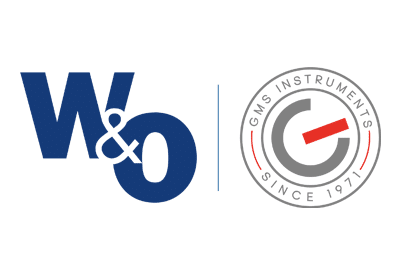
How to choose the correct gas detector
Choosing the right gas detector can be a difficult task. Whether you are in the maritime industry, an offshore professional or just looking for reliable detection technology, you want to make sure to get something that meets all of your needs. After all, investing in the right gas detector could ultimately save lives. In this blog post, we’re going to discuss how to select a gas detector so that you can confidently invest in detecting equipment and ensure workplace safety.
Types of gas detectors
Gas detectors are devices used to alert people of gas leaks or gas escapes in the environment. Gas detectors have the ability to detect a wide variety of gas, including carbon monoxide, methane, oxygen, nitrogen dioxide and sulfur dioxide. Depending on the gas they detect, gas detectors come in various types – portable, ambient air, handheld and fixed gas detectors – to best measure a large variety of gases. Portable gas detectors are good for pocketsized requirements as they are able to detect multiple hazards at once, such as combustibles and toxic substances. Ambient air gas detectors measure and check for any dangerous gases that may be present in an environment. Handheld gas detectors help identify immediately hazardous conditions, while fixed gas detectors monitor environments over an extended period of time with limited manual readings.
Different applications of gas detectors
Gas detectors have a wide range of applications. From industrial gas monitoring in manufacturing and storage facilities to gas leak sensing in the home, gas detectors are valuable tools for protecting both people and property from dangerous gases. In laboratories, gas detectors can measure and monitor concentrations of hazardous gases allowing scientists to adjust ventilation accordingly. On ships, gas detectors are required in spaces storing combustible fuels or chemicals to ensure onboard crew safety from hazardous gas leaks. Gas detectors detect gas types in the atmospheric air. As soon as a certain amount of a gas type occurs in the atmospheric air, this is detected by the gas detector and the gas detector gives an alarm. Gas detectors are even used by first responders who enter buildings after disasters for gas leak detection and carbon monoxide monitoring before firefighters are allowed inside these hazardous environments. Gas detectors provide vital protection wherever gas may be present.
Step by step
-
Type of gas
The first step in choosing the correct gas detector is to determine the type of gas you need to detect. There are three main types of gases that detectors can sense: combustible, toxic, and oxygen. Each type of gas requires a different sensor, so it is important to know which type of gas you need to detect before making a choice.
-
Environment
Another important factor to consider when choosing a gas detector is the environment in which it will be used. There are detectors that are designed for use in hazardous environments, such as those that are explosion-proof or intrinsically safe. There are also detectors that can be used in less hazardous environments, such as those that are battery-operated or have wireless capabilities.
-
Sensitivity
Once you have determined the type of gas you need to detect and the environment in which the detector will be used, you can then select a detector with the appropriate sensitivity. It is important to choose a detector that is sensitive enough to detect the gas at levels that may be harmful, but not so sensitive that it gives false alarms.
-
Easy to use
Finally, it is important to choose a gas detector that is easy to use. Some detectors have complex displays and controls, while others have more user-friendly interfaces. It is important to select a detector that will be easy for you or your colleagues to use in order to ensure accurate readings.
The right choice
When it comes to choosing a gas detector, there are several factors that you need to take into account. Keep in mind what is important to your application and use those criteria to choose the correct gas detector. If you need more help making a selection or want to know more, don’t hesitate to reach out to one of our specialists. We would be happy to assist you further.
